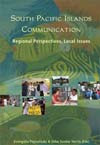
By Sylvia Giles: Pacific Media Centre
Wanted: More interpreters – especially Pasifika - for the Manukau SuperClinic, which is catering for a district more culturally diverse than any other in New Zealand.
Interpreters used by the clinic - essential for the safety of patients and medical staff - include Afghan, Arabic, Cantonese and Vietnamese.
However, the free service is still having difficulty finding qualified interpreters for core Pacific languages, such as Tongan.
The Counties Maukau District Health Board (CMDHB) has more than double the Pacific population of any other district health board.
Pacific peoples make up 21 percent of the board’s population, compared to 6 percent nationally. The district also has a growth rate of 3.2 percent, double the national average of 1.6 per cent.
Carol Cameron, Interpreting Services team leader, is charged with the task of co-coordinating the extensive interpreting service, which also provides interpreters for Middlemore Hospital, courts and police in the area.
“For the safety of the doctors and the nurses, as well as patients, they should be using the recognised source, which is the Interpreting Services,” she says.
“We need to make sure the interpreters who are out there, doing the job, are trained and that we have regular updates with them, regular meetings and that everyone is aware of their responsibilities.
“The risk of using a family member or friend is that they may not understand the situation. They might interpret the wrong diagnosis, or may interpret wrongly,” she says.
“But also there is concern that if there is bad news, or something like that, they may not tell the patient the correct information. That emotion comes into it.”
Trained role
This explains the Counties Manukau policy that any interpreting must be done through their own interpreting services - by trained interpreters.
“We cannot hire anyone without having done the certificate in liaison interpreting,” says Cameron.

While there may be no shortage of Tongan speakers in the area, the lack of speakers with the necessary qualification hinder the ability to provide the service.
“Tongan people seem to be reluctant to do the course,” she says.
At present, they have one point five Tongan interpreter permanently on staff – between all the services they cover – as well as a small pool of casual interpreters.
Ineke Crezee, course coordinator for Translation and Interpreting Studies at AUT University, has found an increased demand for trained interpreters since the course’s inception in 1990.
However, the ability to produce interpreters still rests with the speakers that enter the course.
“We do not always get applicants representing particular languages applying to do the course and if we do, we sometimes find that their command of the English language is not such that they would be able to successfully train to be interpreters,” she says.
Crezee says the high demand for Pasifika language interpreters continues to hold strong, and she has noticed an increased number of Pasifika students coming to do the course.
Samoan legal terms
“This year we have a group of three Samoan students undertaking a legal interpreting paper, which is great because it enables them to discuss the correct Samoan translation of particular legal terms with their language peers.
“Two years ago we had three Tongan students in our liaison interpreting course. However, some of these were taking the paper as part of BA studies and went into alternative employment upon graduating,” she says.
“We get the whole range in terms of age, gender and ethnic and socio-cultural backgrounds, ranging from young second generation speakers of Chinese – whose English may be much better than their Chinese, since they did not complete secondary and tertiary education in a Chinese speaking country – to mothers wanting to train for casual work, to older community leaders with excellent skills in both English and their own languages.
Andrew Gordon, ear, nose and throat specialist at the Manukau clinic, estimates that for a clinic of around 10 to 12 patients he will have one or more that needs an interpreter.
“They are indispensable. Otherwise you just become a veterinary practice, to be blunt,” he says.
“And there are certain types of problems where the medical history is everything, like dizziness or tinnitus which is relatively subjective, unlike examining a lesion,” he says.
Nicky Hopping, surgical booker for the Ear, Nose and Throat Department at Manukau SuperClinic, will book interpreters at the same time as surgeries, and has encountered the lack of Tongan translators in particular.
Cancelled surgery
In her role, the worse case scenario is a cancelled surgery. But the cultural nuances involved with the job on the whole are subtler, making the job of a qualified interpreter all the more crucial.
“Sometimes the family doesn’t want an interpreter. Culturally, they just don’t like an interpreter being in the room” says Ms Hopping.
“Or sometimes, with some cultures, a man will feel protective of his wife and will not tell her the whole story.”
Carol Cameron agrees: “The entire service relies on identifying the need for an interpreter. Unless it is recognised either by the GP, or the person booking the appointment that an interpreter is required, someone may well come in, and struggling with English. They might get half way through the appointment and the doctor might think, ‘This is not going anywhere, I actually need an interpreter.’”
These last minute requests, Ms Cameron points out, are the hardest to fill.
“It is better for us to book an interpreter, and have the patient turn up and say ‘I am OK, I don’t need that,’ rather than us allowing a consultation to happen and maybe the patient walking out and not understanding a word that the doctor said.
“And they need to be qualified so that they understand issues of confidentiality. For the purposes of clinical safety, and medico-legal issues, they are absolutely needed,” she said.
In her experience, most patients felt confident to ask for an interpreter.
“I think the general public will say if they need an interpreter,” she says.
“It is better to do that than for the patient to walk away not really understanding. And if we can’t provide an interpreter, a follow-up appointment needs to be made.”
For any patient, who might already be feeling vulnerable or fearful, being put into the situation of not understanding the doctor would be frightening.
“It is not until you visit a country yourself that you know it’s really hard making yourself known,” she says.
“So, I also too think that we, working in Counties Manukau, need to be aware and if we feel that someone doesn’t understand it is better to check. And if not, ask the patient if they would like an interpreter.”
Sylvia Giles is a Graduate Diploma in Journalism student on the Asia-Pacific Journalism course at AUT University. Pictured: Manukau Superclinic.






















No comments:
Post a Comment